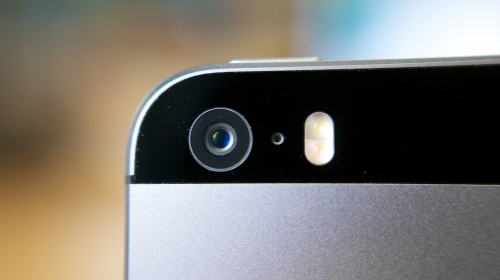
was first published as part of the New York Times Room for Debate feature which asked: How much should tech companies cooperate with the government on data access?
Apple's new encryption policy is a victory for privacy, security and free speech. We should encourage other companies to safeguard their customer's data in the same way.
In an era of cyber insecurity, strong encryption is more critical than ever. The F.B.I. has suggested that instead of protecting its users from those threats, Apple ‚ÄĒ and presumably every other tech company ‚ÄĒ should weaken its encryption by building in a backdoor to all of our secrets.
As security experts have observed, this is a disastrous idea. Once you build a backdoor, you can't control who will use it. Hackers will search for them ‚ÄĒ and eventually exploit them. And foreign governments will come knocking, too, perhaps for good reasons, but perhaps to persecute political dissidents.
And requiring the tech companies to build backdoors will not make it any easier to capture sophisticated criminals. Those criminals already have access to a wide array of encryption technologies that don't rely on intermediaries like Apple.
There's a deeper flaw in the F.B.I.'s criticism. The bureau appears to believe that, with a warrant, it should have access to whatever information it likes. But the government has never had access to everything, and it shouldn't. We have always been free to burn our letters, to shred our files, and to delete our emails.
In the recent debate, no federal official has seriously proposed compelling Apple and the rest of the tech companies to build backdoors in their products, but statements like the F.B.I.'s carry with them a not-so-subtle coercion. That is unfortunate, because we have always been free ‚ÄĒ under the First Amendment ‚ÄĒ to communicate using encryption without giving the government a spare set of keys. The government could no more prohibit backdoor-free encryption than it could mandate that everyone write intelligibly and in a language that the F.B.I. understands. And it could no more order Apple to create a backdoor in its iPhone encryption than it could compel Gmail to prevent users from obscuring their emails through allusion and double-meaning.
Encryption has a long pedigree in our country. Indeed, it is more than just a little bit ironic that today's F.B.I. laments the widespread security that encryption brings while James Madison and Thomas Jefferson relied on it to protect their most sensitive correspondence ‚ÄĒ about the drafting of the First Amendment, no less.
In the end, it is shortsighted to believe that making all of our information more vulnerable will somehow make us safer. The opposite is true. We are all safer ‚ÄĒ and freer ‚ÄĒ when our private data is more secure.
Learn more about police surveillance and other civil liberties issues: Sign up for breaking news alerts, , and .

